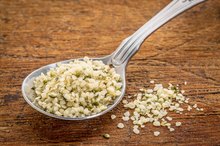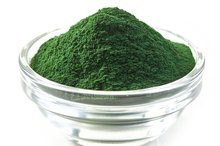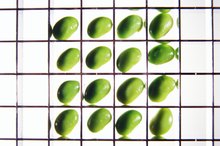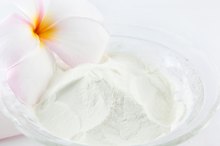What does fact checked mean?
At Healthfully, we strive to deliver objective content that is accurate and up-to-date. Our team periodically reviews articles in order to ensure content quality. The sources cited below consist of evidence from peer-reviewed journals, prominent medical organizations, academic associations, and government data.
The information contained on this site is for informational purposes only, and should not be used as a substitute for the advice of a professional health care provider. Please check with the appropriate physician regarding health questions and concerns. Although we strive to deliver accurate and up-to-date information, no guarantee to that effect is made.
Dietary protein provides the body with the amino acids needed for protein synthesis, a process in which amino acids are linked into chains of different configurations to create proteins that will be used for various physiological processes, such as forming the structural component of all cells, the production of hormones and enzymes and the promotion of tissue growth and repair. Protein also is a source of energy. Dietary protein can come from animal-based foods, such as meat and dairy products, or plant-based sources, such as soy and hemp. For optimal well-being, a sufficient intake of high-quality, or complete, dietary protein is necessary.
Complete Versus Incomplete Protein
A food protein is considered to be complete when it contains all nine essential amino acids; that is, those amino acids that the body cannot produce on its own and that can be acquired only through the diet. In general, unlike animal-based foods, plant-based foods are considered to be incomplete protein sources because they lack adequate amounts of one or more of the essential amino acids; however, soy and hemp are the exception because they contain all nine essential amino acids in sufficient amounts. The overall protein content of soybeans is approximately 35 percent to 38 percent of total calories, according to the United Soybean Board 5. The total protein content of hemp seed is estimated to be between 25 percent and 30 percent.
- A food protein is considered to be complete when it contains all nine essential amino acids; that is, those amino acids that the body cannot produce on its own and that can be acquired only through the diet.
- In general, unlike animal-based foods, plant-based foods are considered to be incomplete protein sources because they lack adequate amounts of one or more of the essential amino acids; however, soy and hemp are the exception because they contain all nine essential amino acids in sufficient amounts.
Protein Recommendations
Hemp Seed for Building Muscle
Learn More
The United States Department of Agriculture recommends that daily protein consumption account for 10 percent to 35 percent of total daily caloric intake, which is about 50 to 65 grams of protein per day for most adults, depending on physical activity level and health status 1. Raw soybeans contain about 36.5 grams of protein per 100 grams and shelled hemp seeds contain about 35 grams of protein per 100 grams. Thus, a daily consumption of approximately two to three servings of soy or hemp can fulfill the dietary protein recommendations.
Amino Acid Content
Compared with hemp seed, soy contains higher percentages of the nine essential amino acids, with the exception of methionine, which is found in slightly higher amounts in hemp. Methionine is a sulfur-containing amino acid that plays a role in removing toxins from the body, such as heavy metals. It also functions to promote skin, hair and nail growth, as well as maintain the health of connective tissue and joints. Hemp seed also has higher levels of the non-essential amino acid arginine, which plays a role in immune function, toxin removal, hormone secretion and blood flow regulation.
- Compared with hemp seed, soy contains higher percentages of the nine essential amino acids, with the exception of methionine, which is found in slightly higher amounts in hemp.
- Hemp seed also has higher levels of the non-essential amino acid arginine, which plays a role in immune function, toxin removal, hormone secretion and blood flow regulation.
Protein Digestibility
How Much Protein Is in a Filet of Flounder?
Learn More
Hemp seed is composed of two main proteins, albumin and edestin, which are easily digested by the body. The digestibility of soy depends on its form. Soy protein isolate, a dry powder form of soy that is often used in commercially prepared products, has a digestibility rating equivalent to animal-based protein, thereby making it comparable in quality. Protein from raw, whole soybeans is not as readily digested because who soybeans contain high amounts of trypsin inhibitors, which interfere with the body's ability to absorb protein. Hemp seed is free of trypsin-inhibiting factors.
- Hemp seed is composed of two main proteins, albumin and edestin, which are easily digested by the body.
- Protein from raw, whole soybeans is not as readily digested because who soybeans contain high amounts of trypsin inhibitors, which interfere with the body's ability to absorb protein.
Considerations
Soy protein is associated with health benefits, such as reduced risk for developing high cholesterol and certain cancers, such as prostate cancer. Although soy has been shown to promote optimal well-being, it is a known allergen and can trigger an unfavorable response in susceptible people. Studies supporting the health benefits of hemp consumption are rare, but its nutritional profile shows promise. Concern regarding the safety of hemp is related to a fear that it could contain tetrahydrocannabinol, or THC, which is found in marijuana. Although both plants are varieties of Cannabis, hemp is derived from non-drug cannabis and contains only trace amounts of THC; therefore, intoxication from its consumption is unlikely.
- Soy protein is associated with health benefits, such as reduced risk for developing high cholesterol and certain cancers, such as prostate cancer.
- Concern regarding the safety of hemp is related to a fear that it could contain tetrahydrocannabinol, or THC, which is found in marijuana.
Related Articles
References
- United States Department of Agriculture: Dietary Guidelines for Americans
- Medline Plus: Protein in Diet
- "American Dietetic Association Complete Food and Nutrition Guide"; Roberta Larson Duyff; 2006
- "Journal of Industrial Hemp"; Hemp as Food at High Latitudes; J.C. Callaway; 2002
- United Soybean Board: Soy Protein Content
- Callaway, J.C. Hempseed as a nutritional resource: An overview. Euphytica 140, 65–72 (2004). doi:10.1007/s10681-004-4811-6
- Kaczmarczyk MM, Miller MJ, Freund GG. The health benefits of dietary fiber: beyond the usual suspects of type 2 diabetes mellitus, cardiovascular disease and colon cancer. Metab Clin Exp. 2012;61(8):1058-66. doi:10.1016/j.metabol.2012.01.017
- American Heart Association. Whole grains, refined grains, and dietary fiber. Updated September 20, 2016.
Resources
- Purdue University: Hemp -- A New Crop with New Uses for North America
- Medline Plus: Dietary Proteins
- "The Encyclopedia of Healing Foods"; Michael Murray, N.D.; 2005
Writer Bio
Cindy Haskin-Popp began writing in 2009. She has been published in "The American Journal of Cardiology" and is an ACSM-certified clinical exercise specialist. Haskin-Popp holds a Bachelor of Applied Arts degree in health promotion and disease prevention from Central Michigan University and a Master of Science in exercise science from Oakland University.









